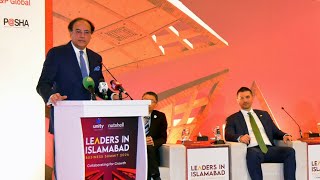EDITORIAL: Journalists in the illegally Indian occupied Jammu and Kashmir (IIOJ&K) have long faced trouble at the hands of security forces. But as a press report points out the situation has gotten dramatically worse since August of 2019 when New Delhi revoked special status of the disputed region, throwing it under a severe security and communication lockdown and the media in a black hole.
A common practice is to summon journalists to police stations and asked to reveal their sources of information – that they are duty-bound to protect — those refusing to comply are booked under the draconian Unlawful Activities (Prevention) Act (UAPA). A number of them have been arrested and many others harassed and assaulted for their work. Last September, the IIOJ&K administration issued a new order under which journalists must be authorised and registered before reporting in the field or publishing media coverage on line. In other words, the authorities are to decide who can report and what may or may not be published.
In yet another attempt to intimidate independent journalists a few days ago, i.e., on January 15, the Kashmir Press Club, a Srinagar-based media institution, was forcibly taken over by the security forces. The Editors Guild of India described the move as a “coup” and a “manifestation of the continuing trend to smother press freedom in the state.”
The crackdown on the press has forced most newspapers to exercise self-censorship in reporting facts for fear of being associated with the freedom fighters and getting hauled up under the UAPA and the new order. Various journalists’ bodies have condemned the Modi government’s attack on press freedoms in IIOJ&K. Castigating what it termed the fast-eroding press freedoms and criminalisation of journalists, the Committee to Protect Journalists said Indian authorities appear determined to prevent journalists from doing their job.
Earlier, International Federation of Journalists had strongly criticised the Indian media policy in the occupied region, saying it clearly violated the freedom of speech and expression, and that “the intent behind it is clear — the government wants to demolish the press in J&K.” Nonetheless, despite media blackout the news of mass arrests, enforced disappearances, custodial killings, torture, rape and suppression of freedom of speech do get out.
UN Secretary-General Antonio Guterres has been expressing “deep concern” over the humanitarian crisis in IIOJ&K, calling on India to “respect human rights and fundamental freedoms” when dealing with discontent in the disputed territory. And Office of the UN Human Rights Commission in its reports has been describing the situation as one of “total impunity for enforced or involuntary disappearances, with little movement toward credibly investigating complaints, including into alleged sites of mass graves in the Kashmir Valley and Jammu region.”
Under Prime Minister Narendra Modi’s rule, media freedoms have taken huge hit in India as well. Last year, in its global press freedom index the international media watchdog Reporters Without Borders ranked the country at 142nd place, below Afghanistan and Zimbabwe. No wonder worst repressive measures are reserved for IIOJ&K. But such tactics have not, cannot, stop what is happening on the urban as well as rural streets of the disputed region.
Copyright Business Recorder, 2022
























Comments
Comments are closed.